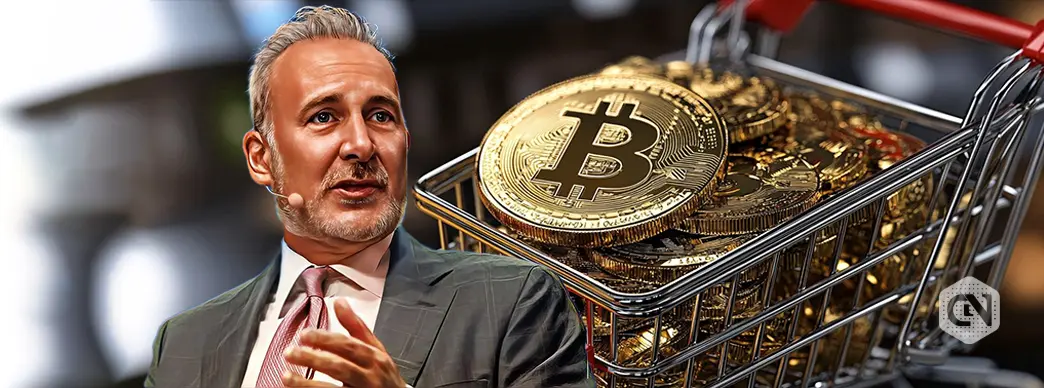Economist Peter Schiff has taken to social media to criticize CNBC, claiming the network is biased in favor of Bitcoin (BTC). Schiff voiced particular disdain toward CNBC anchor Joe Kernen, who he accused of passively supporting a suggestion made by Fundstrat Global Advisors’ Co-founder, Tom Lee regarding a Bitcoin reserve. In the interview, Lee suggested that the U.S. government could buy Bitcoin as a “Treasury reserve asset.” However, Schiff urged the Biden administration to sell the $15.75B BTC stash held by the U.S. government.
Peter Schiff Firmly Against Bitcoin Reserve Creation
“Most CNBC anchors are nothing more than paid #Bitcoin shills,” Peter Schiff wrote on X, commenting on the broadcast where Lee’s idea was discussed. He called out Kernen for his silence when Lee suggested that U.S. officials could buy Bitcoin to boost its value, which could be a hedge against the country’s $36 trillion national debt. The idea aligns with Lee’s longstanding bullish stance on the flagship crypto, as he foresees BTC’s value appreciating as adoption increases.
Critics of Schiff were quick to respond. One user remarked that the U.S. government already holds a substantial amount of Bitcoin, much of it seized from criminal cases, effectively making it one of the largest “HODLers” BTC. Schiff replied, “The Biden administration should sell now,” expressing skepticism over the potential benefits of holding BTC long-term.
Most @CNBC anchors are nothing more than paid #Bitcoin shills. @JoeSquawk said nothing when @fundstrat advocated that the U.S. government buy Bitcoin to drive the price higher so that it would have a valuable reserve asset to offset its soaring $36 trillion national debt.
— Peter Schiff (@PeterSchiff) November 8, 2024
Since Donald Trump is yet to take the office in January 2025, if the current administration offloads the entire BTC stash, the crypto market could crash. In addition, the creation of a strategic Bitcoin reserve would be strenuous as the Trump administration would have to repurchase BTC.
Advertisement
Meanwhile, another user questioned whether Schiff’s criticism of this strategy was well-founded, noting that some crypto advocates might favor a Bitcoin reserve. However, Schiff argued that even crypto enthusiasts should worry, as if the government amassed a whopping 1 million BTC, any attempt to sell would likely “crash the market.”
Tom Lee’s Perspective
The conversation stems from an interview with Lee, who proposed Bitcoin as an unconventional solution to the U.S. deficit. According to Lee, incorporating Bitcoin as a reserve asset could address fiscal challenges by leveraging the BTC’s deflationary characteristics and limited supply. He argued that Bitcoin’s finite nature—capped at 21 million coins—could enhance its value over time, potentially serving as a hedge against inflation and offsetting national debt.
“It’s going to be very difficult to fix the deficit with just changes in taxes and spending,” Lee explained, emphasizing that Bitcoin’s appreciation in value might provide the Treasury with an alternative buffer. The premise is that as Bitcoin’s price rises, so would the worth of the reserves, potentially alleviating some government liabilities.
Furthermore, Lee also presented an optimistic 2024 economic outlook. While acknowledging inflationary pressures, he expressed confidence in both traditional stocks and digital assets. He noted growing interest in Bitcoin from retail investors, a trend he believes could further drive up Bitcoin’s price and solidify its role as a significant financial tool.
Although Lee’s idea remains speculative, it reflects a shift in how digital assets are perceived by traditional finance. His suggestion highlights a willingness to explore new fiscal strategies, even if the prospect of a strategic Bitcoin reserve is still far from realized. However, Schiff’s remarks show, not everyone is convinced that a digital reserve could effectively support economic stability without unintended consequences.
Advertisement
Also Read: U.S. Bitcoin ETF Sees Net Inflow of $2B within 2 days of Trump’s Win








